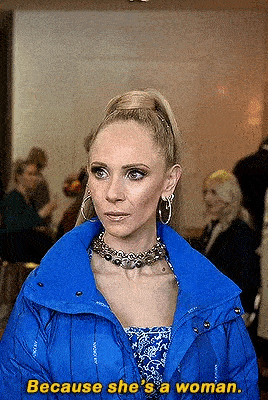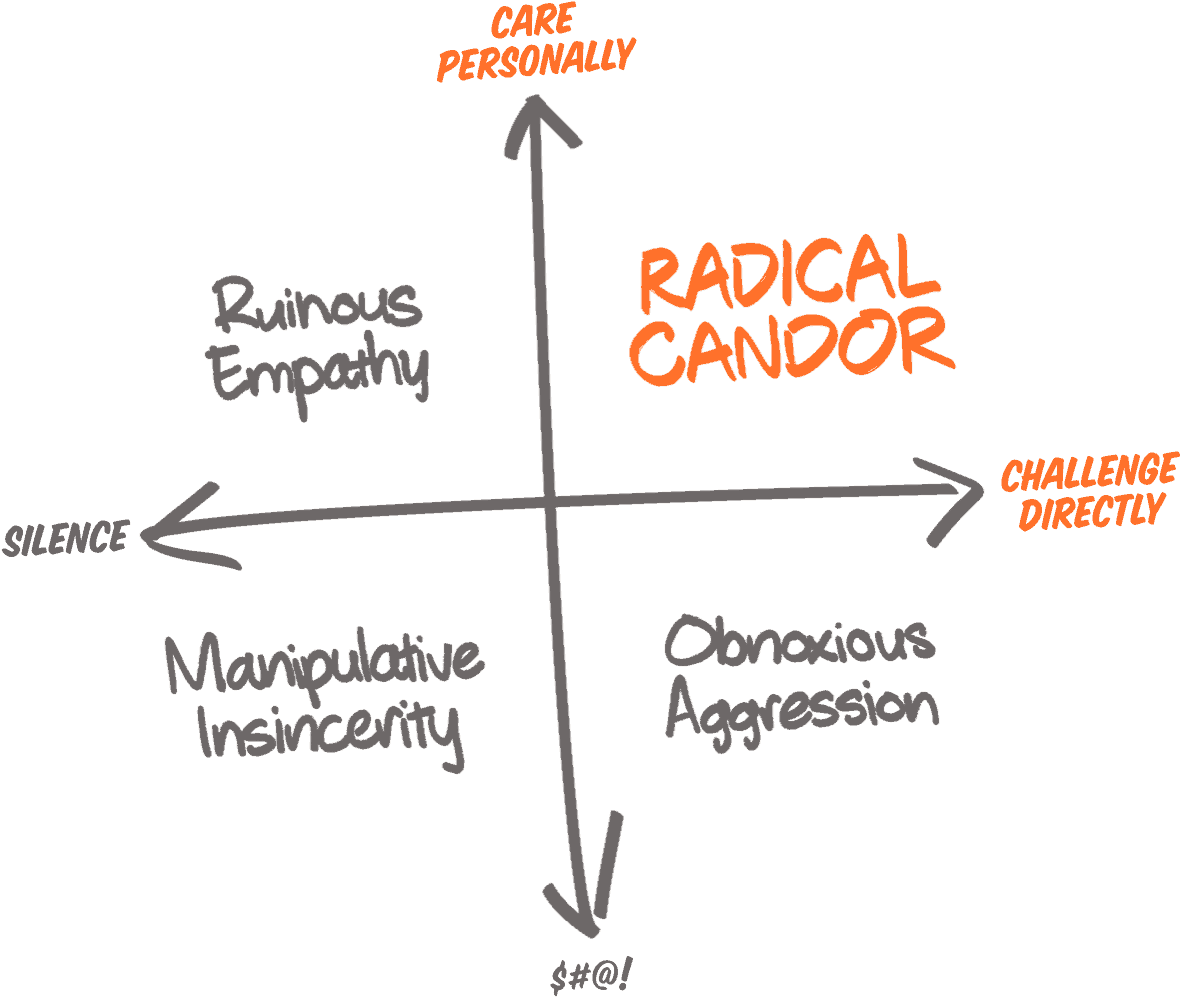Is it loud in here, or is it just me 👀
Speaking with power, not pushiness.
In our intro letter, we talked about why we called Nice Work “nice.” One reason is to reclaim the word nice. In most contexts, “nice” is more like “fine” and “agreeable” than “outstanding” or “respectful.” Which makes it a far cry from being anywhere close to “powerful” - whether in quality or presence.
That painting is powerful, but that coffee was nice - get the vibe?
This misconception of nice leads to workplace ick in a million ways (newsletter fodder for years to come!), but we’ve started to hear from you all about a meta-theme you’re experiencing: how you speak at work. And how what you say, how you say it, what you don’t say, and how you don’t say it is perceived.
Overall, it feels like nice humans are the quiet and agreeable diplomats of the office. If you’re opinionated, loud, or in a position of power, you’re probably “not nice.” And if you actually are pointing out an issue? Definitely not nice.
This problem is universal. Depending on your seniority, experience, culture, background, role, title, and/or even the makeup of a meeting, you might be expected to be nice, quiet and agreeable.
Or, for the same reasons, you are expected to be present and powerful but aren’t sure how to do that without being pushy and loud (because then you’ll be seen as not nice, and the whole cycle starts over again).
To TL;DR it: This is about reconciling our concepts of presence, power, and niceness. Nice humans can be present, powerful, and loud. Just as they can be present, powerful, and soft-spoken. We have work to do on both sides of the table - both redefining nice in others and rediscovering what nice looks like for us.
Let’s tackle this mountain with some thought exercises and truths.
Exercise 1: Do I think nice means being quiet? 🤔
Are you nodding? In service of being nice, many of us tend to be quiet (and nod in agreement instead of saying “Yes!”) We take seats on the edge of the room, not at the table. If we raise our hands and are not called on, we stay silent. We have ideas and opinions, but sharing them (especially if it is in contrast to someone else!) without prompting is not nice.
Truth: This makes for an unenjoyable workplace. We get frustrated when other humans don’t notice us or hear us (even if we think our body language is like, so obvious). And what also can happen in this scenario is quiet is replaced by noise. When humans are so focused on making themselves heard, they miss other cues entirely. For example: Human A is busy being loud, so they'll miss that Human B is trying to speak up. As a result, Human B gets louder, which prompts Human C to be even louder. And so it goes until everyone is shouting over one another. Except for the quiet, nice girl in the corner who is death-staring the human with the talking stick (i.e., asking for permission to speak) and then goes home to subtweet about meetings that should have been an email.
What we love to see: Humans who choose the volume that feels authentic to them. There’s an amazing woman I know who has started speaking quieter to ensure she is listened to. She wasn’t getting any traction meeting her colleagues volume for volume, and she felt it kept her from showing up powerfully. So she switched it up. She still speaks up and speaks often but does so in her own style. That’s nice AND that’s powerful.
Exercise 2: Can I think of a nice human that shows up powerfully at work? 💪
This is a hard one. Because when we say nice and powerful at the same time, what comes up for you? Are they strong and silent? Is their power at work due to their universal adoration as the human who never forgets a birthday? What age are they? What gender? Now flip their age and gender. Are they still nice? Be honest with yourself. What characteristics are you admiring in one age group or gender and cringing at in another?
Truth: It's proven that men AND women struggle with the idea of women in power, and that leads to issues reporting to them. It's proven that women and minorities are expected to do more emotional and social labor in the workplace than men (and men can either be championed or criticised for doing it). And don’t get me started on the pressure to present as likeable instead of respected. These are just a few of the issues at play. This “nice” stereotype slices into a thousand more problematic scenarios depending on culture, context, job role, job sector, country, language, etc. In short: We all have un-learning to do about what nice looks like in positions of power and how WE can show up powerfully no matter our role.
What we love to see: The “gender bias” riddle slowly showing itself the door (thanks Ted Lasso for being great, as always).
Other great reads about this - a factual article about how the riddle is dying out. And a satirical article filled with many, many others. Good for a laugh but also good practice for us to realise how ridiculous and pernicious these thoughts can be.
Exercise 3: If someone disagrees with or challenges me, is THAT nice? 😬
Think of two situations where someone challenged you or criticised your work - did you find them nice then? Why or why not? Were they direct or indirect? Were you in the wrong, or were they? If they personally insulted you or threatened you, obviously, that’s not ok. But outside of them being a Disney villain to play a role in your internal story, were they actually being mean? Or were they just not pleased with you or disagreed with you?
Truth: The mark of a nice human, contrary to popular belief, is NOT someone who sacrifices their right to an opinion on the altar of someone else’s sensitivity. Nice people exchange ideas, opinions, and (very often) disagreements. This doesn’t make them not nice, nor does it make the workplace not nice. In fact, a workplace where a human can do this (sans cruelty) without being crucified at the water cooler is VERY nice.
What we love to see: Humans practising Radical Candor (a great read we highly recommend). There’s an illuminating graph in that book that shows how care and directness intersect, including how we point out mistakes.
Another outstanding example of this? Here 👇
Direct. Powerful. The definition of nice, in our opinion. Nicely. Done.
In the American version of the tv show The Office, Kelly Kapoor goes to business school courtesy of their new employer Sabre. She later applies for the General Manager role. It becomes clear that she’s been invited as a token interview, not to be taken seriously. When she catches on, she delivers this impeccable show of power:
Hopefully, after reading this newsletter, you’d agree that Kelly’s response is also a nice example of speaking up.
But - maybe you think it would be nice if it weren’t for the name-calling?
Welcome to the final takeaway: You can be a nice human, a powerful human, a direct human, AND YET STILL someone who swears at someone who is clearly wasting your time. And if someone calls you out for your not-nice behaviour in this way, pay attention. They are being incredibly nice to you by pointing out an area where you gotta do more work.
Speak up and show up in a style that works for you this week,
Rachel








